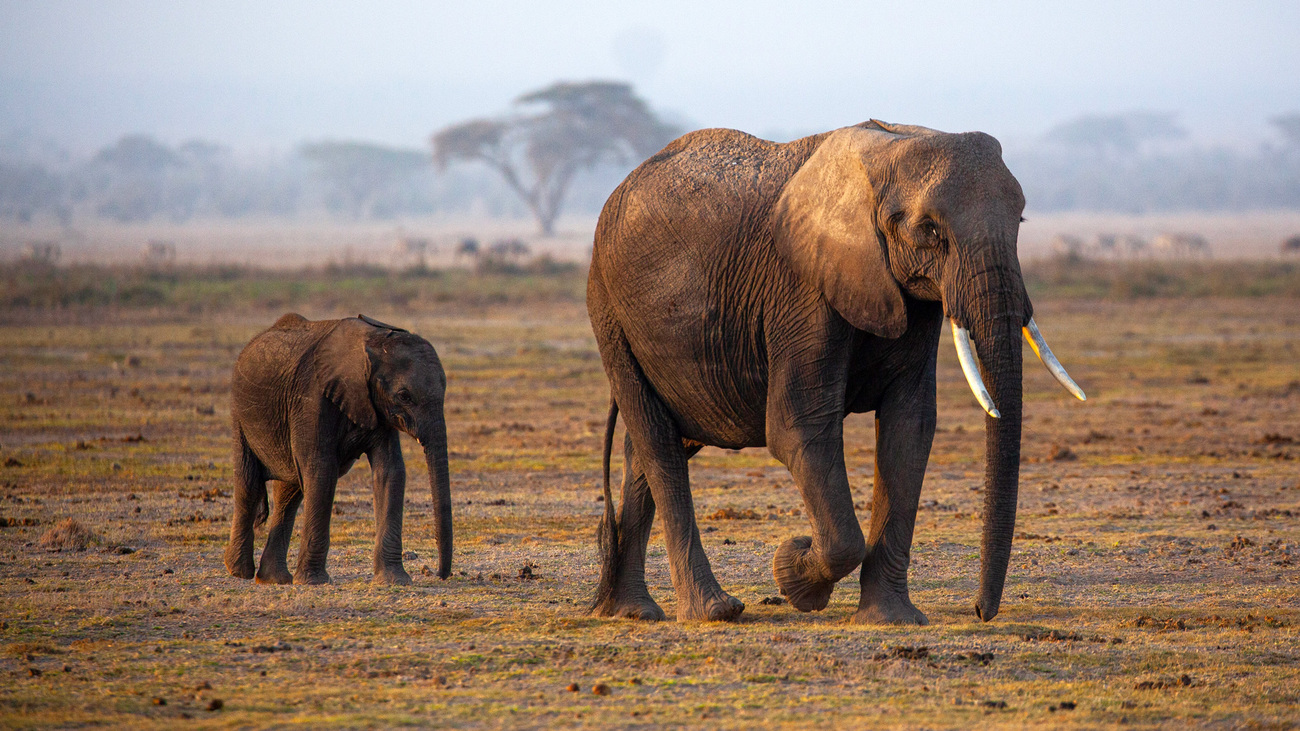Blog
Long’uro: one elephant’s story of immense resilience
Read moreKenya’s role in leading climate change discussions across Africa

Written by Simon Addison – Climate Change Advisor, IFAW
Kenya is assuming a leading role in mobilizing climate action across Africa and beyond.
That was the topic of discussion last month, when leaders from IFAW’s climate and Africa programs met with Kenya’s Ministry of Environment, Climate Change and Forestry to discuss the upcoming African Climate Summit and the innovative ways in which Kenya itself plans to conserve and protect wildlife as valuable natural capital in the fight against climate change.
Principal Secretary Eng. Festus K. Ng'eno hosted the IFAW team in the Ministry’s Nairobi office, which is currently making arrangements to host the African Climate Summit, set to take place this September during Africa Climate Week. Both are key events in the lead up to the UN Climate Change Conference (COP28) this November in Dubai.
@EnviClimateC_Ke Principal Secretary, Eng. Festus K. Ng'eno hosted a delegation from International Fund for Animal Welfare (IFAW) led by Climate Change Advisor IFAW Global Programs Mr. Simon Addison who called on him in his office
— State Dept For Environment & Climate Change (@EnviClimateC_Ke) March 14, 2023
👇👇👇https://t.co/YeGbUxCuYs pic.twitter.com/yF6prk8aCM
The African Climate Summit comes at a critical moment in history. As the latest synthesis report by the Intergovernmental Panel on Climate Change (IPCC) shows, the world is not on track to meet the goal of the Paris Agreement to limit global warming to 1.5⁰C this century. If effective action is not taken immediately to reduce greenhouse gas emissions, support climate adaptation, and address loss and damage, the impacts will be severe.
This is especially true for the world’s least developed countries (LDCs), most of which are in Africa. These nations are on the frontline of the climate crisis. Across the continent, communities, ecosystems, and wildlife suffer devastating consequences from rising temperatures and variable rainfall. For instance, over the past six years Kenya has experienced an unprecedented drought, which has killed thousands of animals and left millions of people in need of humanitarian relief. Meanwhile, Malawi and Mozambique struggle to recover from the devastation wrought by Tropical Cyclone Freddy.
The African Climate Summit presents a unique opportunity for Kenya to lead African countries in highlighting these and other climate impacts whilst also showing how those countries are designing and implementing innovative solutions that can serve as a model for the rest of the world. One such solution is Kenya’s County Climate Change Fund, which delivers local climate finance directly to communities so they can implement their own climate adaptation plans.
The African Climate Summit also offers a valuable platform to highlight nature conservation and wildlife protection as key tools for tackling climate change. As the IPCC has shown, agriculture, forestry, and land use changes that threaten endangered wildlife and critical ecosystems, such as deforestation, industrial development, and urbanization, also contribute up to 24% of global greenhouse gas emissions.
The good news is that protection, restoration, and effective management of wildlife habitats and critical ecosystems are among the most effective and economical options for mitigating climate change. In fact, the IPCC reckons that such “nature-based solutions” are among the top five most effective strategies for reaching net-zero carbon emissions by 2030. Stopping biodiversity loss and accelerating the implementation of these types of solutions must therefore be a top priority in the global effort to meet the goals of the Paris Agreement.
A good example of how this works in practice can be found in IFAW’s Room to Roam initiative. By connecting elephant habitats in and around Kenya’s Amboseli Tsavo ecosystem, IFAW is working with Kenyan partners, including the Kenyan Wildlife Service, to address climate change on multiple fronts:
As a continent, Africa is home some of the world’s most important biodiversity hotspots, from the savannas of Kenya to the mountains of Uganda and Rwanda and the tropical rainforests of the Congo and Gabon. It therefore has the potential to act as a world leader in delivering nature-based climate action through the protection, restoration and effective management of wildlife and biodiversity.
Building upon the landmark agreement of the Convention on Biological Diversity to secure 30% of the world’s terrestrial and marine habitats by 2030, Kenya can use the African Climate Summit as a platform to showcase Africa’s unique natural heritage and to call for a dramatic increase in the amount of international finance invested into nature-based solutions to the climate crisis.
Our work can’t get done without you. Please give what you can to help animals thrive.
Unfortunately, the browser you use is outdated and does not allow you to display the site correctly. Please install any of the modern browsers, for example:
Google Chrome Firefox Safari